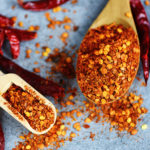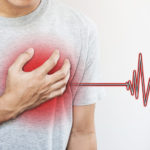By Bonnie Jenkins, Advanced Natural Wellness
Forget the old adage about an apple a day. If you’re looking to lower your risk of pancreatic cancer, you’d be wiser to eat a healthy dose of cabbage, onions and spinach. So says a recent study which found that participants who consumed diets rich in those specific vegetables saw their pancreatic cancer risk reduced, significantly in some cases. Apples—not so much.
Researchers at the German Institute of Human Nutrition Potsdam-Rehbruecke, with colleagues in California and Hawaii, examined data from the Multiethnic Cohort Study, which collected dietary and other data on more than 215,000 people, ages 45 to 75. Data were available on 183,518 participants. The researchers, who reported their findings in the American Journal of Epidemiology, looked for a link between three specific flavonols— quercetin, kaempferol and myricetin—and reduced pancreatic cancer risk. Flavonols—antioxidant-rich compounds that occur naturally in plants—have been the subject of much recent research on their possible health benefits.
The study’s lead author, Dr. Ute Nöthlings, and colleagues reported that total flavonol consumption overall was associated with a 50 percent lower risk of pancreatic cancer. But some foods seemed to offer more benefit than others: Onions and black tea showed a modest association with lowered risk. Apples and green or herbal teas, on the other hand, showed none. Kaempferol, a flavonol found in abundance in spinach and some cabbages, provided the most benefit.
Interestingly, the smokers in the study saw more significant risk reduction from all the flavonols. “The effect was largest in smokers, presumably because they are at increased pancreatic risk already,” Nöthlings said, noting that smoking is the only established risk factor for pancreatic cancer. Quitting smoking or not smoking at all is probably the best advice in terms of pancreatic cancer prevention.
Although pancreatic cancer is relatively rare, by the time it’s diagnosed the treatment options are few and survival rates are poor—making prevention especially important.
But don’t be too quick to give up on that apple a day. Although apples may not specifically lower your risk for pancreatic cancer, a diet rich in fruits and vegetables—providing a wide variety of flavonols and other nutrients—is an important component in a healthful lifestyle.
The World's Quickest Solution for Ending Prostate and Urinary Misery
This has recently been revealed to be one of the only real breakthroughs in prostate health.
The seeds of a strange fruit (sometimes called "Chinese Apples") hold powerful phytonutrients that are a revolution in prostate health.
In fact, UCLA and Veterans Administration research have now proved this to be true.
Not only that, but it may be the worlds quickest solution for ending prostate misery.
Simply stated, these phytonutrients represent a huge step beyond beta sitosterol, saw palmetto, and other phytosterols alone.
Simply click HERE if you want to have fast prostate relief...restful, uninterrupted sleep...no more constant "urges to go"...enhanced virility...and optimal prostate support for life.
An apple a day may also help keep exercise exhaustion away, according to a small study of the quercetin found in red apples, berries, cabbage, red onions, broccoli and both green and black tea. Quercetin is thought to fight inflammation and promote cell-energy activation, but has mostly been studied in animals—until now. University of South Carolina researchers tested quercetin supplements on a dozen healthy college students in a crossover trial: For seven days, the volunteers drank Tang (yep, the same orange astronaut stuff we drank when we were kids) with 500 mg. of added quercetin, twice daily; then for another week the students got Tang without quercetin. Their maximum oxygen uptake and exercise endurance was measured using a stationary bicycle. Compared to the non-quercetin period, participants were able to ride 13 percent longer when getting the quercetin supplements. Their maximum oxygen uptake also increased slightly, by 4 percent. Researchers commented that the findings suggest quercetin may be important in relieving fatigue that keeps people sedentary.
Along with eating a diet rich in quercetin, you can take this potent cancer-fighter in supplement form. The most commonly recommended dose is 200 to 500 mg. of quercetin taken two to three times per day. The only caveat is if you are taking HRT for menopausal symptoms or the calcium channel blocker felodipine. Taking quercetin with these medications can increase the potency of these drugs.
References:
Davis MJ, et al. The Dietary Flavonoid Quercetin Increases VO2max and Endurance Capacity. International Journal of Sports Medicine and Exercise Metabolism. 2009; 1.
Davis JM, et al. Effects of the dietary flavonoid quercetin upon performance and health. Current Sports Medicine Reports. 2009;8:206-213.
Nöthlings U, et al. Flavonols and Pancreatic Cancer Risk: The Multiethnic Cohort Study. American Journal of Epidemiology. 2007;166:924-931.






